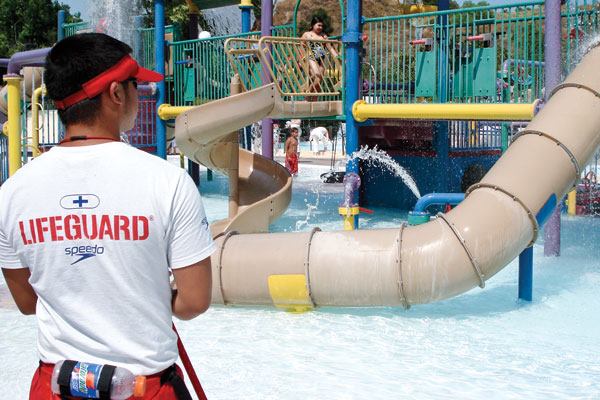A proposed change to the way foreign workers who come to the United States under the J-1 Summer Work Travel visa program must be treated has some pool management companies scrambling to have the rules clarified before summer.
An initial final rule, published last May by the U.S. State Department, notes in part: “Job placements must be seasonal or temporary and must provide opportunities for participants to interact regularly with U.S. citizens and experience U.S. culture during the work portion (i.e., not travel portion) of their programs.”
Management companies are concerned that the part calling for participants to interact regularly with U.S. citizens during the work portion of their programs means that the foreign worker must be accompanied at all times by a U.S. citizen worker. In the case of lifeguards, who are a sizable portion of the J-1 visa holders, this would make it unfeasible to hire foreign workers.
“The main effect for us is that in August, when all the American students have gone back to school, but the pools want to stay open, we’re not going to be able to keep pools open,” said Jim Fraser, CEO and co-president of Pool Management Group in Roswell, Ga. He said his company has used J-1 students for approximately 10 years and has been deeply involved in the cultural exchange aspects of the program.
“They’re doing two things, from our standpoint. One, they’re ruining the cultural opportunities for the J-1 students and for Americans who get to know these students. The other thing is that they’re cutting out workers who are filling these jobs at the end of August when there is absolutely no one else to fill them,” Fraser said.
The Association of Pool & Spa Professionals is pressing the pool management companies’ case with the State Department. Attorney Steven B. Getzoff, a partner in the firm Lester Schwab Katz and Dwyer, is the APSP’s point man.
“The next step is looking to reach out to the State Department to come to an understanding on this,” Getzoff said. “This is a fluid process.”
The State Department restricts what kind of work J-1 visa holders may do. For instance, they’re not allowed to work between 10 p.m. and 6 a.m.; they cannot have jobs that require driver’s licenses; and they can’t take work away from U.S. citizens. J-1 workers are supposed to have the opportunity to experience American culture at the workplace and during breaks for travel during their stays here.
Meanwhile, pool management companies are beginning the annual process to put people in lifeguard chairs for the summer season. If they’re not allowed to use J-1 workers as they have in the past, companies will have to struggle to fill those spots. In 2011, the State Department issued 324,294 J-1 visas for workers in all industries.
“Hopefully, working with the State Department, we can get clarification on this,” said Carvin DiGiovanni, APSP’s senior director, technical and standards. “[Employers] are concerned that using these people will be disallowed because of previous abuses.”
In 2011, several hundred J-1 workers went on strike from a Pennsylvania plant run by a company that packed candy for a manufacturer. The workers claimed they were forced to pay more than market rates for their rent and that they weren’t paid enough to facilitate their U.S. travel, which is part of the J-1 program. The labor recruiter in that case was subsequently barred from the J-1 program.



